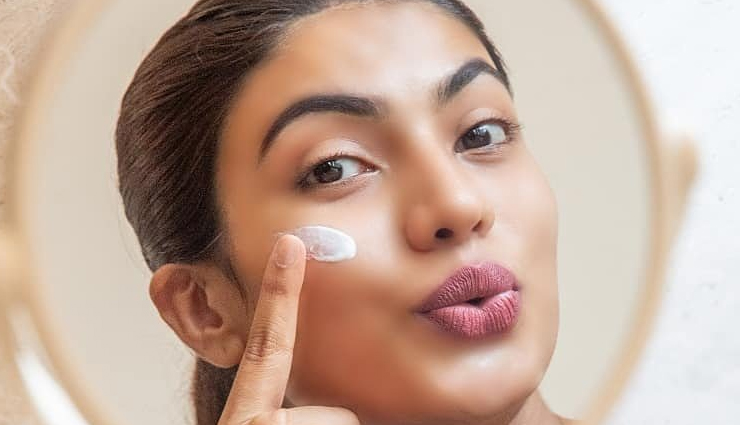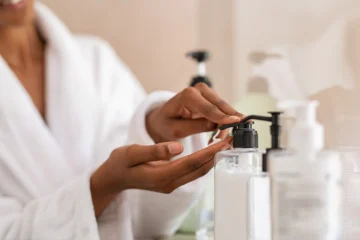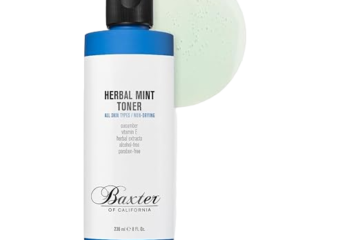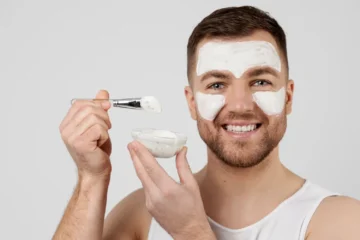Hyperpigmentation is a common skin issue that many women face. It involves patches of skin becoming darker than the surrounding area due to an excess of melanin. Whether caused by sun exposure, hormonal changes, or inflammation, hyperpigmentation can be a source of frustration for those aiming for an even skin tone. But don’t worry! In this blog post, we’ll explore how to treat and prevent hyperpigmentation effectively.
Understanding Hyperpigmentation
What is Hyperpigmentation?
Hyperpigmentation refers to areas of the skin that are darker than the surrounding tissue. This darkening occurs when an excess of melanin, the brown pigment that produces normal skin color, forms deposits in the skin. The condition affects individuals of all skin types.
Types of Hyperpigmentation Commonly Found in Women
Hyperpigmentation can manifest in various forms. The most common types include:
- Melasma: Often referred to as the “mask of pregnancy,” melasma is typically triggered by hormonal changes and is common among pregnant women or those taking birth control pills.
- Sunspots: Also known as liver spots or solar lentigines, these are caused by prolonged exposure to the sun. They commonly appear on the face, hands, and other parts of the body frequently exposed to the sun.
- Post-inflammatory Hyperpigmentation (PIH): This occurs after an injury or inflammation of the skin, such as acne, eczema, or psoriasis. The affected area becomes darker due to an overproduction of melanin during the healing process.
Factors Contributing to Hyperpigmentation
Several factors can contribute to the development of hyperpigmentation, including:
- Sun Exposure: Ultraviolet (UV) rays from the sun can increase melanin production, leading to sunspots and dark patches.
- Hormonal Changes: Fluctuations in hormones, particularly estrogen and progesterone, can trigger melasma.
- Skin Injuries or Inflammation: Any form of skin trauma, such as acne, cuts, or burns, can result in PIH.
- Genetics: Some individuals may be genetically predisposed to hyperpigmentation.
Understanding these factors can help in managing and preventing hyperpigmentation more effectively.
Treating Hyperpigmentation
Skincare Routines and Habits that Can Help Reduce Hyperpigmentation
An effective skincare routine is crucial for managing and reducing hyperpigmentation. Incorporate these habits into your daily regimen:
- Consistency: Stick to a consistent skincare routine. Patience is key, as it may take several weeks to see noticeable improvements.
- Gentle Cleansing: Use a gentle cleanser to remove impurities without irritating the skin, which can worsen hyperpigmentation.
- Exfoliation: Regular exfoliation helps to remove dead skin cells and promotes cell turnover, aiding in the fading of dark spots.
The Role of Double Cleansing and Choosing the Right Cleansers
Double cleansing is a method that involves using two types of cleansers to thoroughly cleanse the skin:
- Oil-based Cleanser: The first step involves using an oil-based cleanser to break down makeup, sunscreen, and excess sebum. Oil-based cleansers are effective in dissolving impurities without stripping the skin of its natural oils.
- Water-based Cleanser: Follow with a water-based cleanser to remove any remaining impurities and cleanse the skin deeply. Look for cleansers with ingredients like salicylic acid or glycolic acid to help exfoliate and brighten the skin.
Double cleansing ensures that the skin is thoroughly cleansed, allowing other treatment products to penetrate more effectively.
Sun Protection and Its Importance in Preventing and Treating Hyperpigmentation
Sun protection is paramount in preventing and treating hyperpigmentation. UV rays can worsen existing dark spots and cause new ones to form. Here are some sun protection tips:
- Broad-Spectrum Sunscreen: Use a broad-spectrum sunscreen with at least SPF 30. Apply it generously to all exposed areas of the skin.
- Reapplication: Reapply sunscreen every two hours, especially if you’re outdoors or sweating.
- Protective Clothing: Wear hats, sunglasses, and protective clothing to shield your skin from the sun.
By prioritizing sun protection, you can prevent further darkening of hyperpigmentation and protect your skin from future damage.
Expert Advice and Insights
Quotes and Advice from a Dermatologist on Treating Hyperpigmentation
“Consistency is key when it comes to treating hyperpigmentation,” says Dr. Jane Smith, a leading dermatologist. “Incorporating products with ingredients like vitamin C, niacinamide, and retinoids can help brighten the skin and fade dark spots over time. Additionally, always use sunscreen to prevent further pigmentation.”
Skincare Expert’s Tips on Building an Effective Skincare Routine
Skincare expert Emily Johnson emphasizes the importance of a holistic approach. “Start with a gentle cleanser, followed by a toner and a serum specifically targeting hyperpigmentation. Look for serums with ingredients like kojic acid and alpha arbutin. Finish with a moisturizer and always end your routine with sunscreen.”
Insights from a Popular Beauty Blogger on Their Personal Experience with Hyperpigmentation
Beauty blogger Sarah Lee shares her personal experience, “Dealing with hyperpigmentation was frustrating, but finding the right products made a difference. Double cleansing helped keep my skin clear, and incorporating a vitamin C serum visibly reduced my dark spots. Consistency and patience were crucial in my skincare journey.”
Lifestyle Changes to Support Skin Health
Dietary Considerations for Healthy Skin
Nutrition plays a significant role in skin health and can impact the appearance of hyperpigmentation. Incorporate foods rich in antioxidants, vitamins, and minerals, such as:
- Fruits and Vegetables: Dark leafy greens, berries, and citrus fruits provide essential nutrients that support skin repair and combat oxidative stress.
- Healthy Fats: Incorporate sources of omega-3 fatty acids like fish, walnuts, and flaxseeds to maintain skin elasticity and moisture.
- Hydration: Drinking plenty of water is crucial for maintaining skin hydration and promoting overall health.
Stress Management Techniques
Chronic stress can negatively affect your skin, potentially exacerbating conditions like hyperpigmentation. Implement stress-reducing practices such as:
- Mindfulness and Meditation: Practicing mindfulness can help calm the mind and reduce stress, which may benefit your skin’s overall condition.
- Regular Exercise: Engaging in physical activity boosts blood circulation and promotes a healthy glow, while also reducing stress levels.
- Adequate Sleep: Prioritizing restful sleep allows your skin to repair and rejuvenate overnight, contributing to a more even complexion.
Avoiding Irritation and Triggers
To manage hyperpigmentation effectively, it’s vital to avoid irritants that could aggravate your skin:
- Harsh Skincare Products: Be wary of products with strong fragrances or irritating ingredients that could damage your skin barrier, leading to inflammation.
- Overexfoliation: While exfoliation is helpful, too much can lead to irritation, so aim for moderation and listen to your skin’s needs.
- Heat and Humidity: Excessive heat can worsen inflammation, so consider adjusting your routine when exposed to high temperatures.
By integrating these lifestyle changes alongside a tailored skincare routine, you can create a comprehensive approach to managing hyperpigmentation and fostering a healthier, more radiant complexion.
Conclusion
Hyperpigmentation can be a challenging skin concern, but with the right approach, it is manageable. A consistent skincare routine, double cleansing, and diligent sun protection are key strategies in treating and preventing hyperpigmentation. Remember to seek advice from dermatologists and skincare experts to tailor your routine to your specific needs.
By following these tips, you can achieve a more even and radiant complexion. We encourage you to share your own experiences and tips for managing hyperpigmentation in the comments below. Let’s support each other on our skincare journeys!
For more personalized advice and product recommendations, consider booking a consultation with a skincare professional. Your path to glowing, even-toned skin starts here.





